Bmw 3 F30 2011 – 2019 – polovnjak, experiences, problems
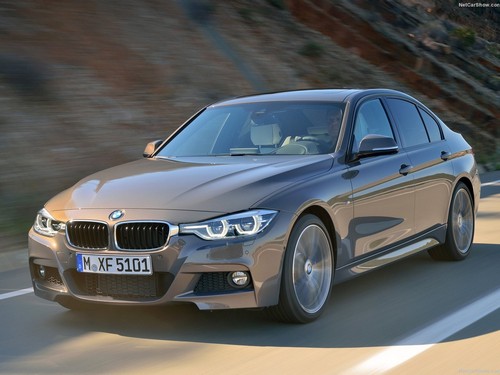
- Model: Bmw 3 F30
- Year of manufacture: 2011-2019
- redesign: 2015
- manufacturer: BMW
- Preceded by: Bmw 3 E90
- Naslednik: Bmw 3 G20
- Grade: middle class
- Competitors: audi A4, Volvo S60 / V60, Mercedes-Benz C, Lexus IS, Jaguar KSF
- Modeli: limousine, coupe sedan and station wagon
- euro NCAP: ★★★★★ (2012)
series 3 She was, is and will remain the most important model BMW. This is her bestseller, and as such has the right in all respects. And for every generation there is a special concern. Each is improved compared to the previous (apart from 2005. do 2012. year for some, but it is debatable). The sixth generation BMW 3 F30 in turn returns well-finished at the highest level, while improving some lack of its predecessor.
Bmw 3 F30 which debuted 2011. year caused a lot of positive emotions. I buy them people who expect excellent handling properties, or calculated from the increased cost of use.
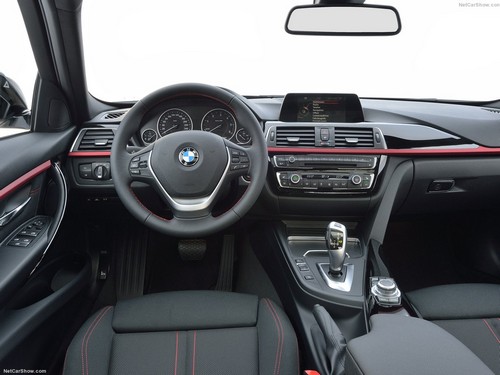
A common feature “Troika” high ergonomics of the cockpit (center console is again facing the driver). Limited space in the seats, unfortunately, typical for BMW 3. However, in this generation space is obviously more than the predecessor.
easier, more spacious and more modern car of premium, although quite unsuccessful series 3 (E90). new “three” F30 impresses with its appearance, but technically has introduced a major breakthrough. Primarily in the field of engines that already have to comply with the Euro 6 standards.
Bmw 3 F30 – engines
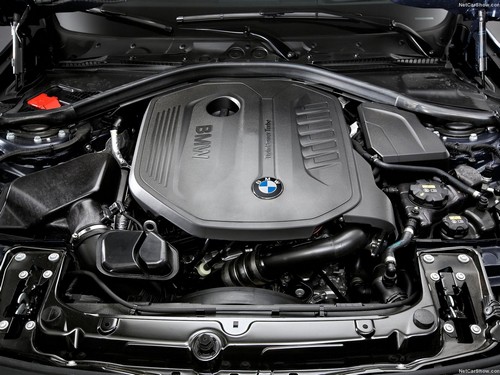
The superlatives, You can talk about most versions of the engine, at least if we think about driving skills, and not about the problems. BMW used a gasoline engine with direct injection. This practice undermines the sense of the use of LPG, but it turned out that the units are relatively economical.
Model 1.5 certainly does not match the character models – ima 3 cylinder (!) And little power. Similarly, gasoline 1.6 pada in 136 horsepower. You will have no complaints when you decide to 2.0 motor, and more 3.0. It is interesting that even 306 horsepower can meet an average of less than 10 l / 100 km and acceleration of 0 do 100 km / h za 5,6 s! surely 10 l will not be enough for dynamic driving.
Among the diesel engines can choose between engines 2.0 R4 i 3.0 R6. Except for versions with 116-horse , You can count on a really nice ride. Average fuel consumption is 6 l / 100 km. If it is too, recommend variant EfficientDinamics (package is also available in petrol versions) improved aerodynamics and tires with reduced rolling resistance. Engines with three liters have almost sports performance.
It should be noted that the engine N47 that controls the model 325d, although four cylinder, a twin turbo charger. Aside from, Problems with the distribution chain in the N47 engines are only sporadic. Unfortunately, there are still failures fuel pump. The best choice is a six cylinder diesel 330d with the power of 258 KS. There's a turbo charger and durable is. It is true that you can not count on an extremely low fuel consumption, but the performance gives a lot of pleasure. I have to admit that the same can be said for a new family of petrol engines.
BMW series 3 F30 – technical specifications for 1.5, 1.6 i 3.0 gasoline engines::
| technical specifications * | 1.5 (318i) | 1.6 (316i) | 1.6 (320i ED) | 3.0 (335i) | 3.0 (340i) |
| Years | from 2015 | 2012-15 | 2012-15 | 2012-15 | from 2015 |
| Motor – tip, valves | gasoline turbo R 3/12 | turbocharged petrol 4/16 | turbocharged petrol 4/16 | gasoline turbo R 6/24 | gasoline turbo R 6/24 |
| Type of control valve | chain | chain | chain | chain | chain |
| Razvod | DOHC | DOHC | DOHC | DOHC | DOHC |
| engine (cm3) | 1499 | 1598 | 1598 | 2979 | 2998 |
| Max. power (KS) in rpm | 136/4400-6000 | 136/4350 | 170/4800 | 306/5800-6000 | 326/5500-6500 |
| Max. torque (Nm) in rpm | 220/1250-4300 | 220/1350 | 250/1500 | 400/1200-5000 | 450/1380-5000 |
| Download ** | 6M, 8A | 6M, 8A | 6M, 8A | 6M, 8A | 6M, 8A |
| Max. speed (km / h) | 210 | 210 | 230 | 250 | 250 |
| acceleration 0-100 km / h (s) | 8,9 | 8,9 | 7,6 | 5,5 | 5,2 |
| consumption ( I; l / 100 km) | 6,4/4,3/5,1 | 7,6/4,7/5,8 | 7,0/4,4/5,3 | 11,1/6,1/7,9 | 10,0/5,9/7,4 |
| *Data for the basic version with manual transmission; **M - Manual, A - automatic transmission | |||||
BMW series 3 F30- technical specifications for 2.0 gasoline engines:
| Technical Specifications * | 2.0 (320i) | 2.0 (320i) | 2.0 (328i) | 2.0 (330i) | |
| Years | 2012-15 | from 2015 | 2012-15 | from 2015 | |
| Motor – tip, valves | turbocharged petrol 4/16 | turbocharged petrol 4/16 | turbocharged petrol 4/16 | turbocharged petrol 4/16 | |
| Type of control valve | chain | chain | chain | chain | |
| Razvod | DOHC | DOHC | DOHC | DOHC | |
| engine (cm3) | 1997 | 1998 | 1997 | 1998 | |
| Max. power (KS) in rpm | 184/5000 | 184/5000-6500 | 245/5000-6500 | 252/5200-6500 | |
| Max. torque (Nm) in rpm | 270/1250-4500 | 290/1350-4250*** | 350/1250-4800 | 350/1450-4800 | |
| Download ** | 6M, 8A | 6M, 8A | 6M, 8A | 6M, 8A | |
| Max. speed (km / h) | 235 | 235 | 250 | 250 | |
| acceleration 0-100 km / h (s) | 7,3 | 7,2 | 5,9 | 5,9 | |
| consumption ( I; l / 100 km) | 8,2/4,9/6,1 | 7,3/4,5/5,5 | 8,5/5,2/6,4 | 7,9/5,1/6,1 | |
| *Data for the basic version with manual transmission; **M - Manual, A - automatic transmission; ***versions of cars: 270/1350-4600 | |||||
BMW series 3 F30- Technical specifications and hybrid versions of the M3:
| Technical Specifications * | 3.0 (M3) | 3.0 (M3 Comp.) | 3.0 (M3 CS) | Activehybrid 3 | 330e iperf. |
| Years | from 2014 | from 2015 | from 2017 | 2012-15 | from 2016 |
| Motor – tip, valves | gasoline turbo R 6/24 | gasoline turbo R 6/24 | gasoline turbo R 6/24 | benz. R 6/24 + electr. | benz. R 4/16 + electr. |
| Type of control valve | chain | chain | chain | chain | chain |
| Razvod | DOHC | DOHC | DOHC | DOHC | DOHC |
| engine (cm3) | 2979 | 2979 | 2979 | 2979 | 1998 |
| Max. power (KS) in rpm | 431/5500-7300 | 450/7000 | 460/6250 | 340 (306+54) | 252 (184+88) |
| Max. torque (Nm) in rpm | 550/1850-5500 | 550/1850-5500 | 600/4000-5380 | 450 (400+210) | 290+250 |
| Download ** | 6M, 7DKG | 6M, 7DKG | 7DKG | 8A | 8A |
| Max. speed (km / h) | 250 | 250-280 | 280 | 250 | 225 |
| acceleration 0-100 km / h (s) | 4,3 | 4,2 | 3,9 | 5,3 | 6,1 |
| consumption ( I; l / 100 km) | 12,0/6,9/8,8 | 12,0/6,9/8,8 | 11,2/6,9/8,5 | 5,3/6,4/5,9 | bd./bd./1,9 |
| *Data for the basic version with manual transmission; **M - Manual, A - automatic transmission, DKG - double clutch | |||||
BMW series 3 F30- Technical specifications of diesel engines 2.0:
| Technical Specifications * | 2.0 (316d) | 2.0 (316d) | 2.0 (318d) | 2.0 (318d) | 2.0 (320d ED) | 2.0 (320d ED) |
| Years | 2012-15 | from 2015 | 2012-15 | from 2015 | 2011-15 | from 2015 |
| Motor – tip, valves | turbo diesel R4/16 | turbo diesel R4/16 | turbo diesel R4/16 | turbo diesel R4/16 | turbo diesel R4/16 | turbo diesel R4/16 |
| Type of control valve | chain | chain | chain | chain | chain | chain |
| Razvod | DOHC | DOHC | DOHC | DOHC | DOHC | DOHC |
| engine (cm3) | 1995 | 1995 | 1995 | 1995 | 1995 | 1995 |
| Max. power (KS) in rpm | 116/4000 | 116/4000 | 143/4000 | 150/4000 | 163/4000 | 163/4000 |
| Max. torque (Nm) in rpm | 260/1750-2500 | 270/1250-2750 | 320/1750-2500 | 320/1500-3000 | 380/1750-2750 | 400/1750-2250 |
| Download ** | 6M, 8A | 6M, 8A | 6M, 8A | 6M, 8A | 6M, 8A | 6M, 8A |
| Max. speed (km / h) | 202 | 205 | 212 | 215 | 230 | 230 |
| acceleration 0-100 km / h (s) | 10,9 | 10,7 | 9 | 8,6 | 8,0 | 7,9 |
| consumption ( I; l / 100 km) | 5,4/3,7/4,3 | 4,6/3,5/3,9 | 5,5/3,8/4,4 | 4,9/3,5/4,0 | 5,2/3,5/4,1 | 4,7/3,4/3,9 |
BMW series 3 F30- Technical specifications of diesel engines 2.0 i 3.0:
| Technical Specifications * | 2.0 (320d) | 2.0 (320d) | 2.0 (325d) | 2.0 (325d) | 3.0 (330d) | 3.0 (335d) |
| Years | 2011-15 | from 2015 | 2013-15 | from 2015 | from 2012 | from 2013 |
| Motor – tip, valves | turbo diesel R4/16 | turbo diesel R4/16 | turbo diesel R4/16 | turbo diesel R4/16 | turbo diesel R6/24 | turbo diesel R6/24 |
| Type of control valve | chain | chain | chain | chain | chain | chain |
| Razvod | DOHC | DOHC | DOHC | DOHC | DOHC | DOHC |
| engine (cm3) | 1995 | 1995 | 1995 | 1995 | 2993 | 2993 |
| Max. power (KS) in rpm | 184/4000 | 190/4000 | 218/4000 | 224/4400 | 258/4000 | 313/4400 |
| Max. torque (Nm) in rpm | 380/1750-2750 | 400/1750-2500 | 450/1500-2500 | 450/1500-3000 | 560/2000-2750 | 630/1500-2500 |
| Download *** | 6M, 8A | 6M, 8A | 6M, 8A | 6M, 8A | 8A | 8A (only 4×4) |
| Max. speed (km / h) | 235 | 235 | 245 | 245 | 250 | 250 |
| acceleration 0-100 km / h (s) | 7,5 | 7,3 | 6,8 | 6,5 | 5,6 | 4,8 |
| consumption ( I; l / 100 km) | 5,8/3,8/4,5 | 4,9/3,5/4,0 | 6,1/4,3/4,9 | 5,6/4,0/4,6 | 6,0/4,3/4,9 | 6,4/4,9/5,4 |
| *Data for the basic version with manual transmission; ***M - Manual, A - automatic transmission | ||||||
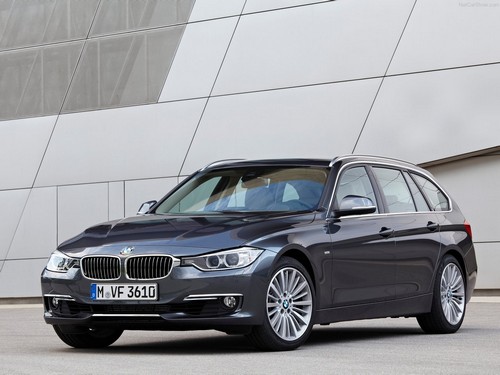
Bmw 3 F30 – problems and failures
This sixth generation series 3 is not perfectly reliable. But the somewhat improved compared to its predecessor. Concern over the turbo engine is rarer or even eradicated, as well as in management and intake manifold. But there are still problems with the distribution chain. The element that is supposed to last as long as a car. Care must be taken and the other things.
BMW series 3 2.0 motor (N20) – lubrication system usually suffers from problems. There are also defective (in the entire N series) ignition coils and costly injectors. The motors of this series types, soot quickly accumulates on intake valves.
Dizel 2.0, installed to 2015. years, belonged to the series N47. The best-known problem with pre-tensioners and chain camshaft, towing chain and maybe shooting. Problem chain makes noise under the hood. If the chain tensioners and do not change in a short period of time, it can lead to serious engine failure. Replacement is a problem because the chain set with hand lever, that has to be dismantled. There is a problem with the fuel pump and floating flywheel, often do not withstand either 100.000 km!
For versions with 2.0 N47 diesel engine in combination with manual transmissions, there is an early termination floating flywheel (pre 100.000 sometimes km), a complete set of couplings must be changed in order to eliminate this defect. The problem is accentuated by the noise and twitching all over the car idle and acceleration at low turns in combination with the metal sound of impact.
at 2.0 N47 diesel engine (316d, 318d, 320d, 325d i 330d), installed to redesign,
Each of the gasoline engines has not only twin turbo charger, which is a very expensive replacement, but Valvetronic system and direct injection. It carries not only the risk of errors, but also problems with electronics based on many sensors.
6-N55 cylindrical units have a failure in the valve control and the ignition system.
The vibrations on the steering wheel. Several cases of vibration on the steering wheel when braking, and even while driving, between 80 km / h i 120 km / h. Tire balancing can solve the problem, and if it is under the brake, replacement discs.
For vehicles equipped with automatic transmissions, pay attention to regular maintenance of this, smooth change of speed up and down, otherwise you can expect high cost of repair.
For vehicles with diesel engines that are driven mainly by city, there are problems with clogged EGR valve and DPF filters. If problems are found early, it is possible to clean items, otherwise it is only possible to change.
A larger number of owners reported damage to the air conditioner condenser, what is most likely the result of exposure to damage caused by stones while driving.
The rapid wear of the original brakes components.
A relatively common occurrence of noise on the door panels and instrument panel below.
In the initial models, there are problems with multimedia interface, which is shown as a black screen, system freezes, unsuccessful parking assistant., problems are often solved by reprogramming.
GT version control issues rear spoiler (This solution was first used in Bmew-in).
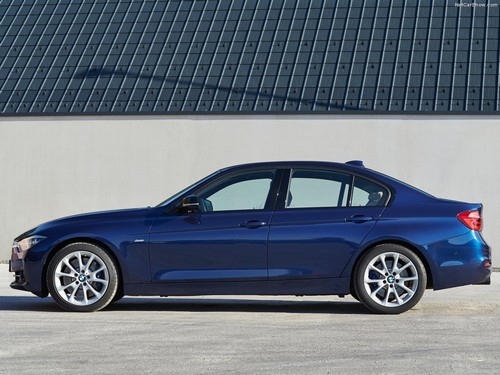
Repeals – BMW series 3 F30
- 07.2013. Recall due to an error on the part of the gearbox. Models manufactured between 01.02.2013. do 01.07.2013.
- 01.2015. Recall due to problems with the systems of safety belts. Models manufactured between 01.09.2014. do 31.03.2015.
- 06.2015. Recall due to problems with the fuel pump submerged in the tank. Models manufactured between 09.01.2013. do 30.04.2014.
- 10.2016. Recall due to problems with control vehicle. Models manufactured between 01.01.2015. do 02.09.2016.
- 8.2018. Recall 4-cylinder diesel engines produced between 4.2015. i 9.2016., i 6 produced between the cylinder 7.2012. i 6.2015. Risk of fire due to the failure of the EGR valve.
BMW series 3 F30- service, maintenance:
| Supplies | benzin * | dizel * |
| Motor oil | 5,0 l (0W-40, L04) | 5,2 l (0W-40, L04) |
| The oil in manual gearbox | 1,2-1,6 l, MTF-LT-2/-3/-5 | 1,6-2,5 l, MTF-LT-2/-3/-5 |
| cooling system | 6,7-7,6 l (glycol-based) | 7,0 l (glycol-based) |
| brake fluid | ok. 1,0 l, DOT 4 LV | ok. 1,0 l, DOT 4 LV |
| Vosne mechanism | chain | chain |
| maintenance intervals | ||
| Motor oil | according to indications comp. ** | according to indications comp. ** |
| filter cabin | each service | each service |
| air filter | any other service | any other service |
| brake fluid | each 2 years | each 2 years |
| The timing mechanism | no periodic replacement | no periodic replacement |
| *data for versions of two liters; **even every 30.000 km – This is definitely too | ||
BMW series 3 price polovnjaka - Review polovnjaka

Hi there, I am Mladen and I am an auto enthusiast. I started this blog years ago to help like minded people share information about latest cars, car servicing ideas, used car info, exotic cars, and auto technology. You will find helpful articles and videos on a wide variety of cars – Audi, Mercedes, Toyota, Porsche, Volvo, BMW and much more. Ping us if you have anything cool to share on latest cars or on how to make older cars more efficient, or just want to say hi!

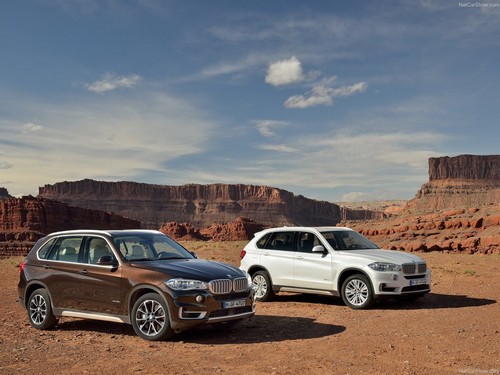
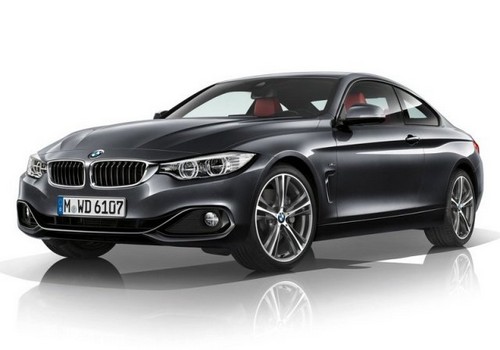
Zaposlite lektora. Neverovatno koliko pravopisnih i gramatičkih grešaka u jednom tekstu.